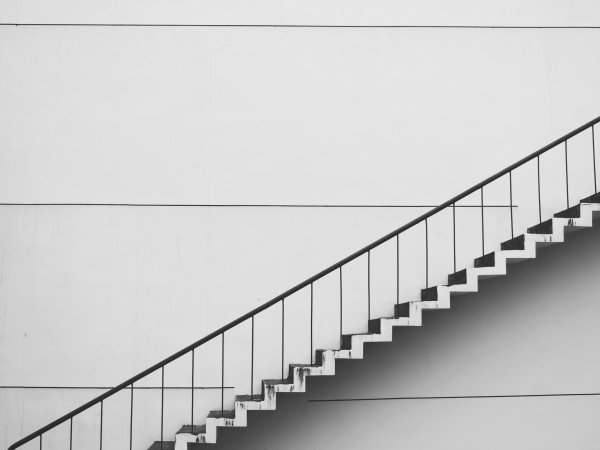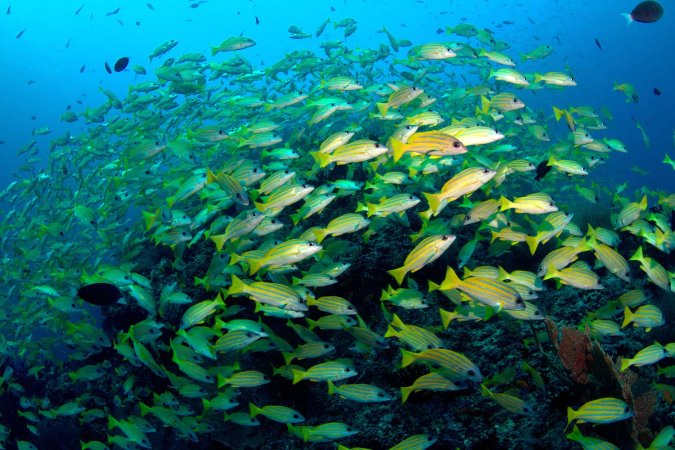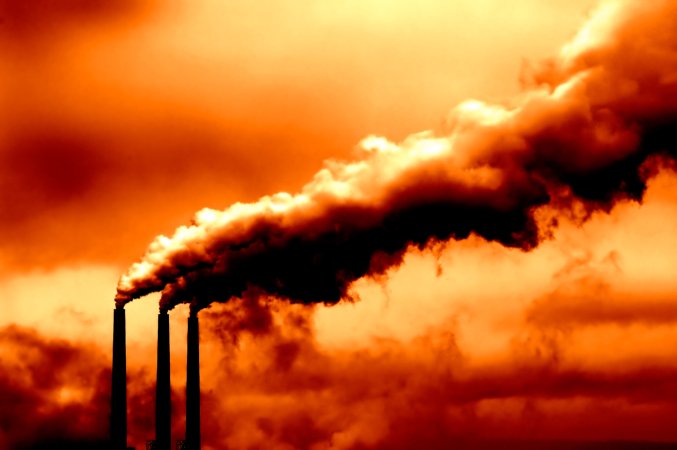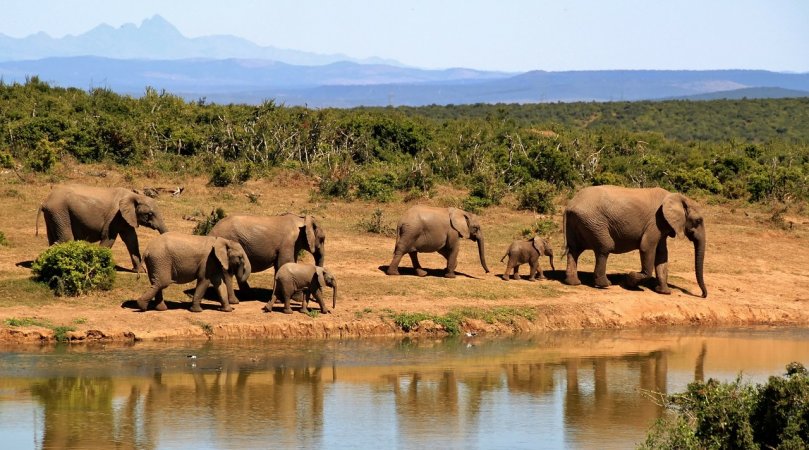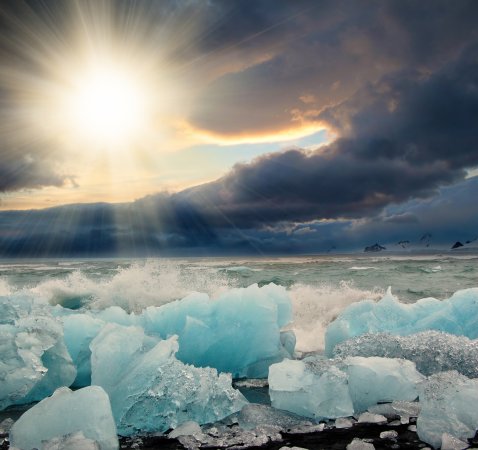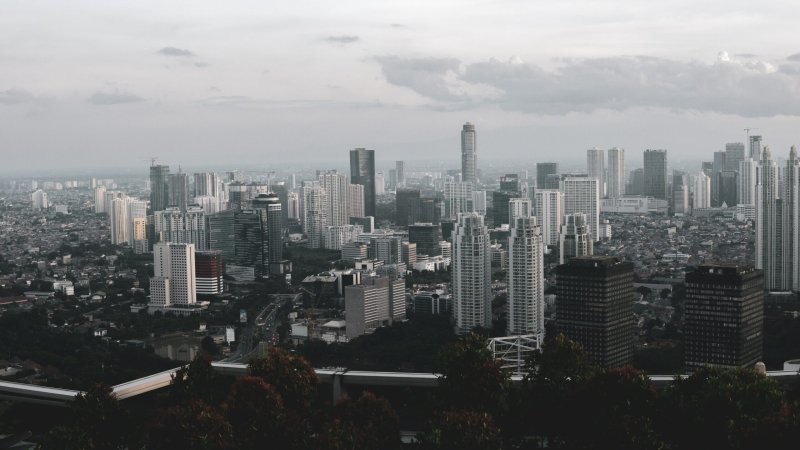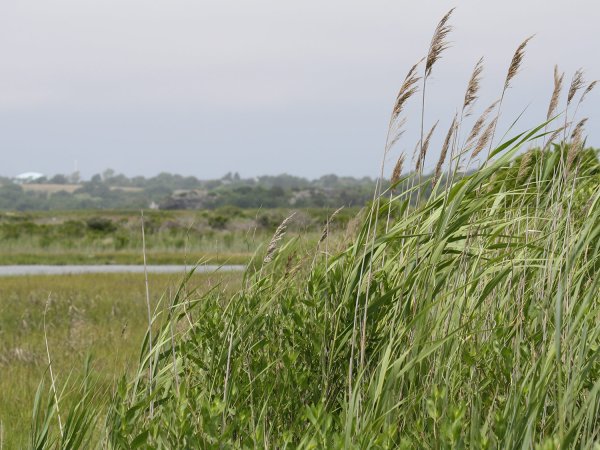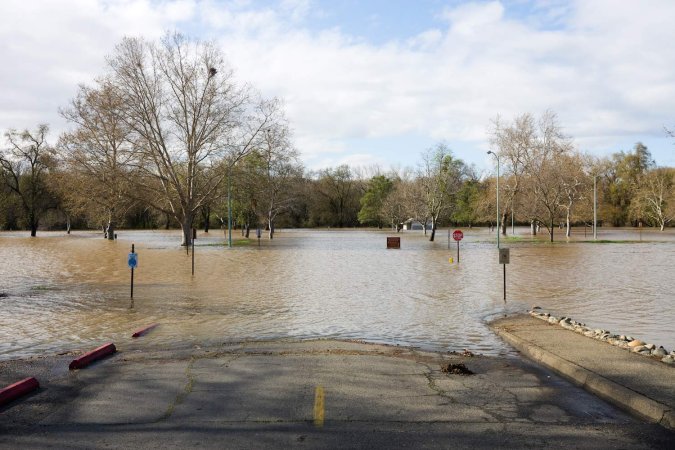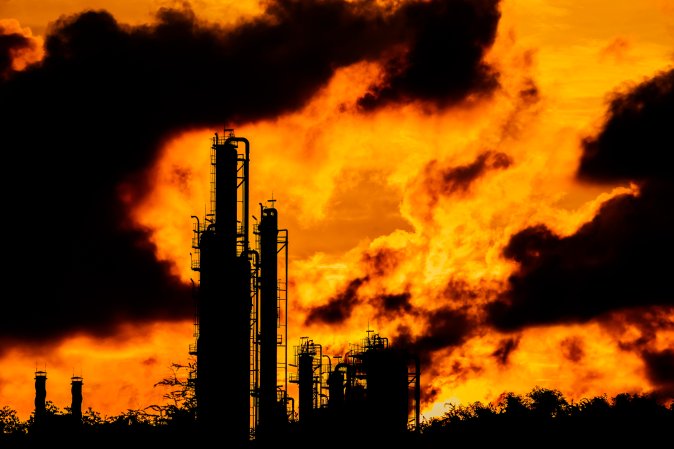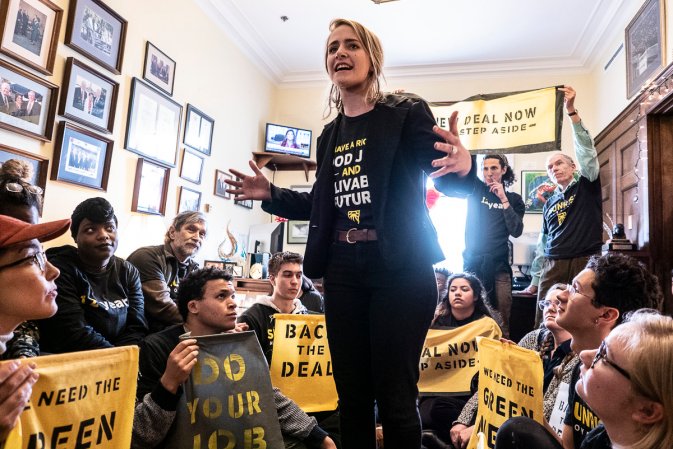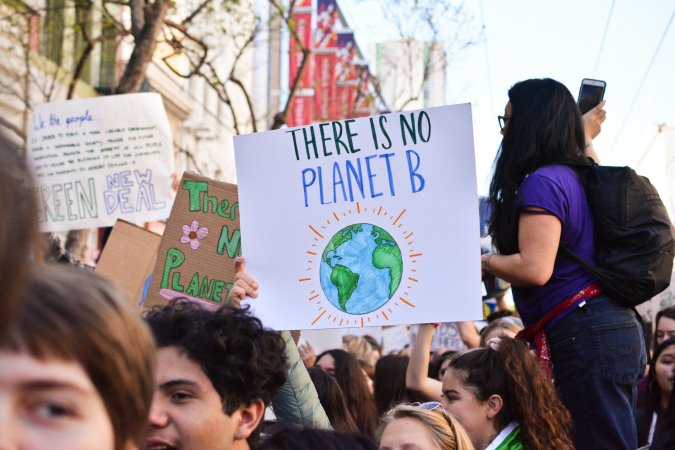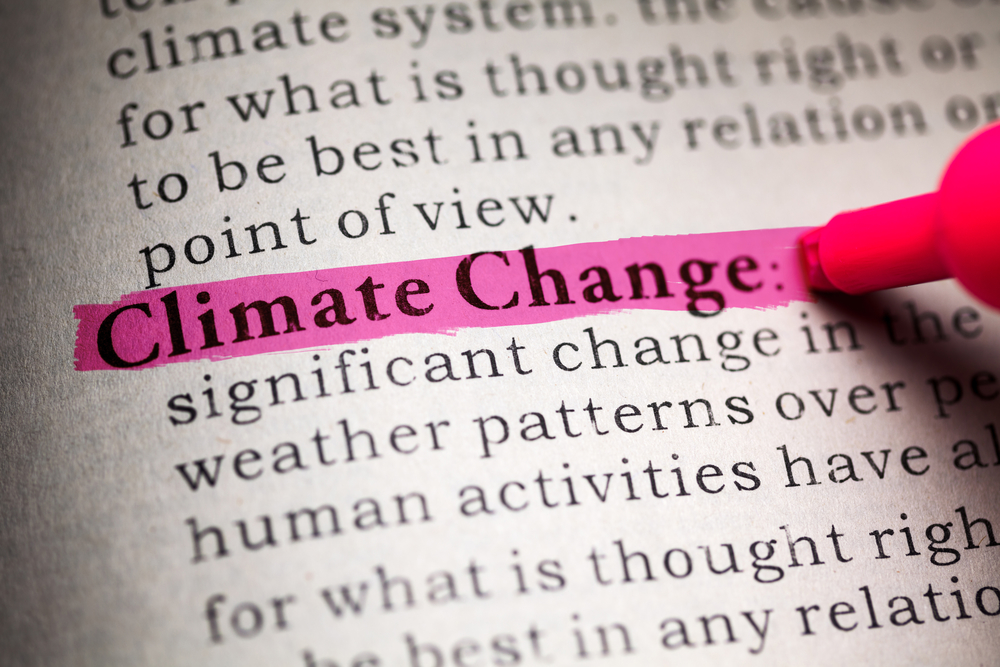

Here’s everything you need to know from June 2019
Which bag is the right bag? A cotton tote from your favorite nonprofit? A plastic-y reusable one bought in a panic at the grocery checkout line? Paper? Those wrinkled plastic ones that seem to multiply under your sink? There’s no definitive answer, but PopSci‘s Ula Chrobak gets as close as humanly possible in her latest lifecycle deep dive. While it’s worth reading up on the pros and cons of every material, the long and the short of it is this: The best bag is the one you already have. To paraphrase Drake, no new bags, no, no, no.
This may come as a surprise, but as Jillian Mock reports in the New York Times, hitting the carwash is a more eco-friendly alternative to scrubbing your hot rod yourself. Sorry for putting you out of business, kids.
Industrial farms get a bad rap. But as Ted Genoways and Nick Stockton document in their recent work for PopSci‘s Make it Last issue (on newsstands now!), small changes applied at such an enormous scales can make a profound difference.
You hate to see it: Some trees are actually making drought worse. That’s according to a recent study in PNAS that found trees in colder climates slowly circulate available water in order to ensure the soil around them is moist. In warmer climates, however, some species go on a spending spree and use up all their water at once.
The Big Apple continues its proactive approach to climate change. This month, the state set about passing its own Green New Deal as the federal equivalent of the climate bill languishes in Congress.
The first Democratic debate for presidential candidates quickly surpassed the entire 2016 election cycle for mentions of climate change, as Earther‘s Maddie Stone noted on Twitter. But the bar was low: Just 7 minutes of discussion about the global crisis was enough to beat all previous records. The trend is likely to continue, as Alexandria Ocassio Cortez’s Green New Deal drives party politics, and Washington State Gov. Jay Inslee positions himself as “the climate candidate.”
Oh, Florida, how we have mistreated thee! In Mallory Picketts’ harrowing exploration of a 16-month-long killer algae apocalypse, the rose-colored glasses come off… and the red tide blooms. Related: Amelia Urry explains why scientists are putting antibiotics into the ocean on purpose. Big hint: It could save Florida’s dying coral reefs.
Speaking of the Atlantic, ghost forests (dead trees deluged by saltwater) are cropping up along the coast.
Great news! State park attendance is on the rise as more and more people get outdoors. Not so great news: Parks can’t keep up with the demand, and climate change could make everything a lot more difficult.
If you’re a park fan, you should also know that the federal government is rolling back public lands like never before, as Marion Renault reports for PopSci.
Taking it back in time: The Inca dealt with a changing climate, too. Way back in the 1400s, the legendary Sapa Inca (that means king) Pachacuti built his empire with water management in mind. Now, scientists are looking to history to cope with the current environmental crisis facing South America.
And, of course, we would be remiss to not mention the most important moment of the entire month: Climate change made a guest appearance on the already villain-filled Big Littles Lies. Climate site Grist has the full story.
The enormity of climate change is hard to understate. It affects the entire planet and everyone on it. Its worst effects are decades off, but it’s also already unfolding. It touches on culture, cars, carbon, and cows, but is driven by something invisible to the naked eye: greenhouse gases. To help you get a grip on our shifting planet—and the ever-evolving state of environmental science—we’ve created a monthly round-up for all things climatology.
Here’s what you need to know from May 2019
Global carbon levels passed a new threshold, reaching 415 parts per million in May. Seismologist Lucy Jones set this change to music, and the result will haunt you.
Thousands of tufted puffins starved to death in the Bering Sea and scientists think climate change is to blame.
The United Nations issued a devastating report on extinction, which estimates 12.5 percent of species on Earth face extinction in the near future. PopSci‘s Alex Schwartz broke the results down into five graphs.
Technically, hurricane season starts June 1. But this year—and for the past several years in a row—it started early.
Indonesia’s capital is sinking and it’s not just because of climate change. The country wants to relocate it to a rainforest, which would wreak havoc on the local environment.
Tigers don’t want to eat humans. But we’ve so thoroughly rocked their world, they don’t have much choice. Here’s how climate change has created a cat-eat-person world.
Residential energy use increases with age. The New York Times reported on the ways older Americans contribute to—and suffer from—climate change.
After a storm, rates of post-traumatic stress disorder rise. Here’s how climate change negatively impacts our mental health.
Remember the scorching heat of summer 2018? A new analysis of climate data confirms: that’s on us.
Some scientists suggest converting methane into carbon could mitigate global warming. It doesn’t eliminate greenhouse gases, but it could limit harm.
The Trump administration has continued its roll back of measures intended to limit climate change.
The New York Times mapped how the plants in your own backyard that will likely change in the coming decades.
Parents absorb some of the lessons their children learn in school, including facts about climate change.
Coastal hotels aren’t ready for the storms and sea level rise coming their way.
Another reason to worry about plastic: Each year, producing the stuff emits the equivalent of 200 coal-fired power plants each year.
Scientists are applying lessons learned in the Inca Empire to modern-day water management issues.
Here’s what you need to know from April 2019
New York City passed a carbon tax on buildings, which account for 67 percent of the city’s greenhouse gas emissions and will require mass-retrofitting of its older buildings.
Greta Thunberg update: The 16-year-old Swedish climate activist is in the midst of her “flygskam” or “flight shame” campaign to promote rail as a viable alternative to flying. The difference, according to environmental reporter Hannah Weinberger is 85 gallons of carbon per kilometer of travel per person.
Most Game of Thrones buffs probably already know the show is less of a fantasy than a warning. Climate change is altering fiction in other ways, too. Check out Buzzfeed‘s coverage of two new books that “rethink the ecoterrorist” by encouraging readers to feel a sense of empathy (if not actual support) for these troubling characters.
The EPA is looking to roll back the Clean Water Act, first passed in 1972 to curb pollution in America’s waterways. For PopSci, Kaitlin Sullivan documented everything that stands to change for each region of the United States. Find yours here.
First came Earth Day, then came Arbor Day. The doubled-up eco-holidays meant climate change got more attention than usual. Both the New York Times Magazine and the Washington Post Magazine did their own special issues on global warming. The Times focused on the economics of the issue; its cover story, “The Problem with Putting a Price on the End of the World,” looked at the fate of carbon taxes. The Post, meanwhile, turned 24 of its stories, on topics ranging from desertification to insect disappearance, into their own distinct eye-popping covers.
Greenland’s ice sheet is melting even faster than we thought.
Logging activity has actually depleted the bedrock in one Washington river, blurring the boundaries between human time and geologic time. Reading up on this new research is a reminder of how hard it is to adequately describe our unique era. The most popular term, “the Anthropocene,” which neatly reflects our geologic-level impact, was coined by Eugene Stormer in the 1970s. In 2010, Elizabeth Kolbert reported that the biologist Daniel Pauly proposed “the Myxocene,” or “Age of Slime.” In 2013, biodiversity expert E.O. Wilson termed our age “the Eremocene,” which means “the Age of Loneliness,” when humans have forcibly cleaved themselves from all other species—to our detriment, and theirs. Most recently, as Odell writes, the feminist philosopher Donna Haraway, inspired by the H.P. Lovecraft monster, coined “the Chthulucene,” a time when every lifeform is a refugee, with nowhere to take refuge.
Climate change is at least putting one invasive species to good use: the common reed. (Unfortunately, warming temperatures are also doing rats a lot of good, too.)
You can’t outrun climate change, but you can try. Kendra Pierre-Louis has a suggestion: Duluth, Minnesota. Read more about the “cool relief” the city promises in the New York Times.
In a Vox opinion piece, union leader and flight attendant Sara Nelson describes the way climate change is already disrupting her industry—and the turbulent times ahead.
Grass, it turns out, is rarely greener when it comes to eco-friendliness. Here are some eco-friendly lawn alternatives, according to the region of the country you live in.
Climate change is one factor in the U.S.-Mexico border crisis, as many people flee Central American countries wracked by extreme weather and subsequent chaos in the agricultural sector. This month, the New Yorker wrote about the situation in the highlands of Guatemala, while the New York Times tackled ongoing hardship in Honduras. Want just one recap? Check out this analysis of the entire debacle from the Washington Post.
On the political front, presidential candidate Elizabeth Warren released the details of her plan to put the nation’s public lands to use in the fight against climate change.
And we can’t believe we had to say it, but wind turbines don’t cause cancer, folks. Despite what President Trump asserted in a speech earlier this month.
Here’s what you need to know from March 2019
This winter was the wettest in the United States since record-keeping began in 1895, according to the National Oceanic and Atmospheric Administration. And the future doesn’t look too bright, either. NOAA predicts disastrous spring flooding will continue through May, with as many as 25 states facing some level of evacuation. Assigning blame for a single event to climate change is almost impossible, but experts say heavy precipitation has steadily risen over the last century, and expect it will continue to rise into the next one.
For a more local analysis of this watery trend, check out Ula Chobrak’s report for PopSci on the devastating floods that still haven’t receded in many parts of the Great Plains. As Emily Atkin writes for the New Republic, high waters aren’t just a temporary inconvenience; they’re “forcing more farmers to consider a stark choice: quit or consolidate.”
… Or Chrobak’s report on the unusually wet winter in California, where some residents were paddling through their flooded communities. (While you’re at it, read up on ARkStorm, a ‘very likely’ sequel to a 19th century California superstorm that caused a 300-mile-long inland river. Today, such a disaster would cause $750 billion in damage and “a substantial loss in life.”)
It’s not just the United States that’s underwater: Cyclone Idai hit the East African coast in mid-March, tearing through Mozambique and neighboring countries with two weeks of intense rain and wind. Two million people experienced flooding, and 468 people were reported dead as of Wednesday in Mozambique alone, according to the Washington Post.
A 16-year-old Swedish climate activist was nominated for the Nobel Peace Prize. Read more about the high schooler in question, Greta Thunberg, in this profile from the Guardian.
A Green New Deal update: the U.S. House of Representatives introduced its first climate change bill this week of the session. It aims to keep the United States in the Paris climate accord. Nine more climate bills should come to a vote this year. In more political news: New York City Mayor Bill DeBlasio plans to extend the city’s downtown shore in order to protect the financial district from flooding; Copenhagen, the capital of Denmark, plans to be carbon neutral by 2025, and the New York Times looked into how this might work; and the reinsurance company Munich Re is now predicting climate change will price whole regions out of insurance, as premiums for flooding, wildfires, and other natural disasters stand to skyrocket.
On the food front: Fish are disappearing. Compared to the 1930s, global fish stocks have shrunk by 4.1 percent. That’s a loss of 1.4 billion metric tons, or 3,086,471,670,588 pounds. Worse yet, unless we keep warming in check, the decline is sure to continue.
If you’re worried about sushi, you should probably also be worried about your favorite fruits. That’s according to the Washington Post, which reports that late-stage freezes are threatening peach, plum, apple, and pear orchards in the east. Meanwhile, on the west coast, fruit and nuts might not be getting cold enough as they grow.
Melting sea ice is already changing the way Arctic residents get around. In some places, boats are starting to replace snowmobiles, long the most common way to get around. But as Kat Eschner wrote in PopSci, boats are expensive, so some people are able to adapt more easily than others. And that’s not the only thing that’s changing up north: the Iditarod, a long-distance sled race that’s been held in Alaska every year since 1973, is facing new climate-related pressures, according to Earther.
After reading this list, you probably won’t be surprised to hear that polling on climate change suggests people are starting to freak out. Between March 2018 and December 2018 alone, Yale researchers report, there’s been an 8 percent increase in the number of people who say they’re “alarmed,” pushing it to a record 29 percent. “Conversely, the Dismissive (9%) and Doubtful (9%) segments have both decreased over the last five years,” the authors write. “The percentage of Americans in these two segments has declined by 12 points since 2013.”
Here’s what you need to know from February 2019
This month marked the debut of The Uninhabitable Earth by David Wallace-Wells, one of the most anticipated climate change books yet written. Like his seismic New York Magazine article of the same name, it’s organized around climate plagues, from heat death to hunger. But it’s also full of novel observations about our failure to create useful storylines around this catastrophe, the role of Silicon Valley in this crisis, and the advent of a new kind of climate capitalism.
Speaking of climate capitalism: Researchers noticed that Greenland’s melting ice sheet is creating new sand, an increasingly scarce resource in an urbanizing world. According to authors of a recent Nature Sustainability perspectives article, the country could boost its fishing-based economy by selling their newfound silica. But the suggestion is, predictably, fraught.
Sand isn’t the only byproduct of retreating ice sheets. Thawing landscapes have also unraveled the fabric of time, revealing frozen Bronze Age mummies, ancient diseases, and, most recently, lichens that haven’t been seen for more than 40,000 years. Who knows what will pop up next.
In a powerful feature for Quanta magazine, journalist Natalie Wolchover described “A World Without Clouds.” According to the climate models reported on here, one type of cloud may go extinct in the next 100 years, which would add 8 degrees Celsius to our current warming predictions. But things are never so simple—especially with the cotton-candy-swirled enigma that is cloud cover. Science magazine is one of the outlets pushing back against these findings, which some experts described as overly-simplified.
This month also marked the debut of a new political agenda. On Feb. 7, Rep. Alexandria Ocasio-Cortez of New York and Senator Ed Markley of Massachusetts officially defined the tenets of their “Green New Deal,” which PopSci laid out here. Implementing their plan might be easier than you think, thanks to big gains in sustainable energy. One of the deal’s many potential benefits? It could help farmers.
On the political front, philosopher Rupert Read lays out the reasons why children skipping school to protest climate change is perfectly logical.
Unfortunately, a new study suggests that humans quickly grow to consider extreme weather normal. By looking at keywords on Twitter, researchers found while people still express discomfort and agitation during a heat wave or a cold snap, they find no longer find such events remarkable after as little as two consecutive years of extremes.
The blue planet is getting greener, according to new satellite analyses of Earth. But as Ula Chrobak explains in an article for PopSci, it’s not only a factor of better farming practices or reforestation efforts. It’s also the “fertilization effect,” which may soon collapse under the pressures of such a carbon-rich atmosphere.
Unfortunately, the Great Lakes—a major source of freshwater—may be souring and turning acidic, just like the ocean.
Nowhere is safe from climate change: A clever new study found modern analogs for what our cities will feel like in 2080. Check out Sara Chodosh’s comprehensive infographics of the mostly-southern shift on PopSci.
Extreme weather puts stress on everyone—including, it seems, those still in utero. Nicole Wetsman explains how.
Animals aren’t spared, either. Kangaroos, polar bears, and other desperate critters have been making their way into human settlements, driven by hunger and habitat loss. Such human-wildlife interactions are often dangerous, and they’re only occurring more frequently.
While we’re now officially looking forward to spring, this winter won’t be easily forgotten. The wonky polar vortex, which recently split apart, continues to beguile scientists. Not only are scientists unsure what it’ll do next, they also aren’t convinced its erratic behavior is due to climate change in the first place.
